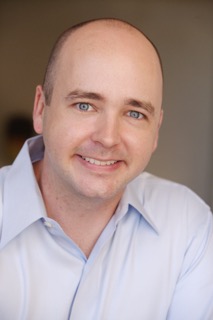MICL Seminar
Tales of Commercializing Engineering Research and Related Irrational Endeavors
Add to Google Calendar

Most doctoral students in physical sciences eventually realize the golden rule
of a successful dissertation and defense: it takes only one functioning device to graduate. The
corollary is that the device must function long enough to capture any meaningful data from it.
That can be elusive. In this seminar, the gap from there to commercialization (or as Peter Thiel
calls it: Zero to One) will be discussed including experience commercializing a wide variety of
microelectronic products and systems such as: semiconductor products (IC and MEMS devices),
chemical instrumentation based on a MEMS platform, class III implantable micromachined
medical devices and, even, LED lighting fixtures. What is consistent across these endeavors is
that all are products based on university research and technology transfer. Additionally, these
are the technologies and products the speaker has brought to market as either a founder or
under his leadership as CEO. The other consistent aspect is that each effort was far worse and
more painful than any rational human being (and particularly, investors) could have ever
anticipated. Nonetheless, successes were achieved. At one point, the speaker's first company,
Mobius Microsystems, had managed to move from a handful of prototype devices in the lab to
shipping 10Mu in a month. None of that happened immediately. As Steve Jobs once stated, "if
you really look closely, most overnight successes took a long time." Nothing could be truer of the
commercialization of university research. This seminar will be linear only in time, but meander
through the speaker's experience in commercializing research, which is irrational, unpredictable,
but also rewarding. Topics to be covered include the history and current state of entrepreneurship
in university, direct experience with technology transfer in the early 2000's, how the world has
changed in the present (for the better) and then colorful stories about commercializing university
technologies out of Michigan, Utah, and Berkeley. Those interested in commercializing their own
work are encouraged to attend. The faint of heart are discouraged.
Dr. McCorquodale has dedicated his entire career to the commercialization of
university research, including his own. Some efforts have gone very well while others are yet to
be determined. As he recovers from the past 12 years in the Bay Area, Dr. McCorquodale is serving
peacefully as an Adjunct Lecturer at the University of Michigan this term (aka he's chilling out).
He also currently serves on the board of several technology companies and is an active angel
investor. He most recently served briefly as the CEO of Arborlight, a University of Michigan spinout
and an integrator of LED components, optics, and embedded systems to achieve complex
illumination solutions. There, he led the company's strategy to identify the best market vertical for
the product and secured purchase orders confirming that. Previously, he was the CEO of Cortera Neurotechnologies, a spinout from UC-Berkeley, which
was founded with the vision to build medical devices aimed at revolutionizing the treatment of intractable neurological disorders. Under his tenure,
Cortera successfully commercialized its microelectrocorticography (uECoG) product for the animal market. Dr. McCorquodale was also the Co-Founder
and COO of e-SENS, a University of Utah spinout developing instruments for chemical sensing in potable water using a single-chip micromachined
platform based on IP from the University of Michigan. At e-SENS, he developed the business plan, raised initial capital, established manufacturing
partnerships, recruited the team and delivered functional prototypes. e-SENS has raised equity capital and continues to grow. Prior to e-SENS, Dr.
McCorquodale was the GM of the Silicon Frequency Control Business Unit at Integrated Device Technology (NASDAQ: IDTI) based on the acquisition
of Mobius Microsystems, a semiconductor company he founded. While leading that business unit, he and his team were recognized with a myriad of
industry awards including multiple "Best Product" and "Product of the Year" awards in the U.S. and Europe. Prior to the acquisition by IDT, he was the
founder of Mobius Microsystems, which was launched based on his research at the University of Michigan where he worked on precision semiconductor
devices and MEMS for frequency control for quartz replacement. At Mobius, he worked his fingers to the bone to ensure success and slept in the offices
in Detroit and Sunnyvale most nights. Consistent with that, Dr. McCorquodale has published over 25 peer-reviewed articles and is an inventor on 28
issued US patents and foreign counterparts thereof. Those patents have been licensed via acquisition to (NASDAQ: IDTI and NASDAQ: MCRL).
Dr. McCorquodale earned the B.S.E. degree with honors from the University of Illinois at Urbana-Champaign
and the M.S.E. and Ph.D. degrees at the University of Michigan, all in electrical engineering. He received
alumni achievement awards from both institutions and was the sole nationwide AFCEA Fellow in 2002. In
2012, UBM Electronics, publisher of EETimes, honored him with the Innovator of the Year Award, which is
given to one person in the semiconductor industry at large. He is a Senior Member of the IEEE.
 MENU
MENU 
